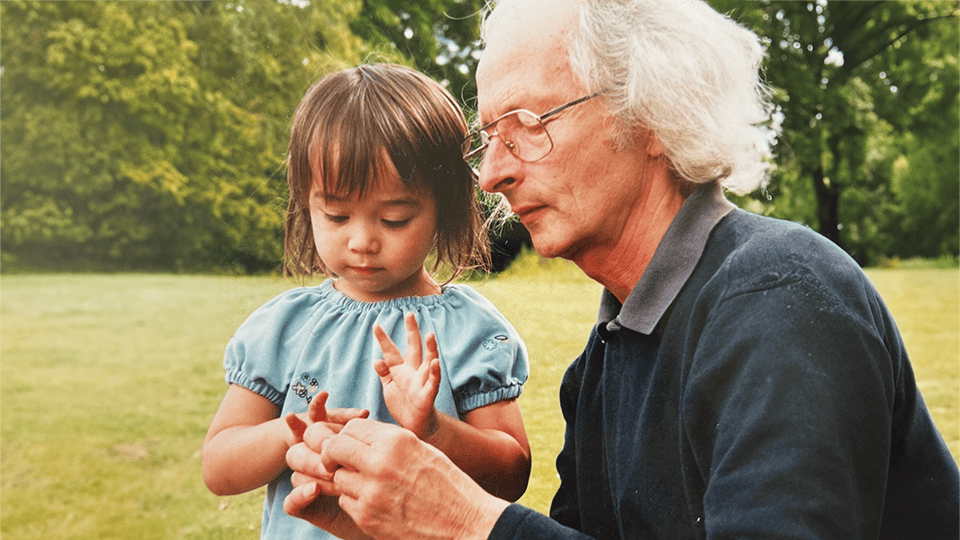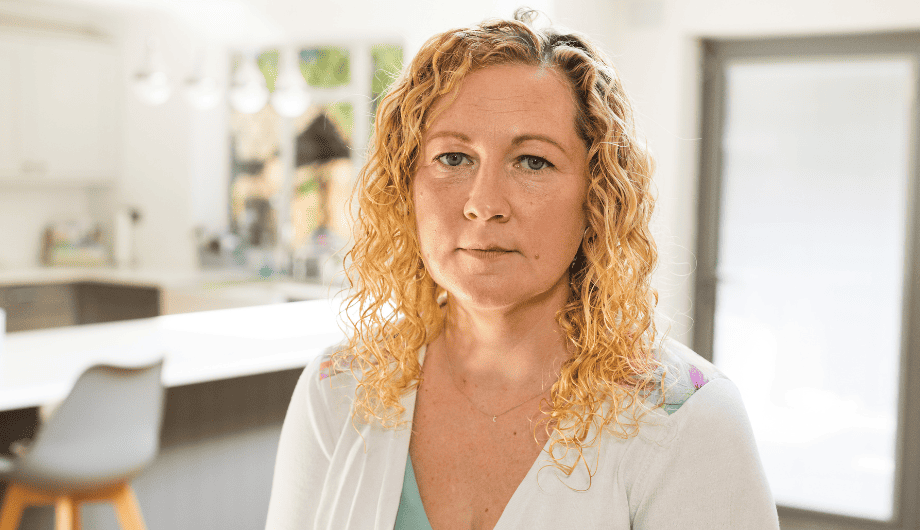
Saïna’s story – A song for my beloved grandpa, Ralph
Saïna opens up about how her grandfather’s dementia has affected her, and how songwriting has provided a release.
Whether a person is showing early symptoms of dementia or has just received a diagnosis, it can have a big emotional impact, and it’s natural to worry about how their condition will progress.
These are some of the signs that you might see in someone with early stage dementia.
Dementia is a progressive condition that gets gradually worse over time. There is currently no cure or treatment that slows its progression down.
It is generally accepted that there are three main stages of dementia: early, middle and late. However, the condition will affect everyone differently.
When someone is diagnosed with dementia, they and their family often want to know how it will progress. However, it is impossible to say how long each stage will last.
For many people, the early stage will last for months or years, but it may progress rapidly, although this is rare.
The progression of dementia will depend on many factors, including:
Because the progression of dementia varies so much between people, it is better to focus on enjoying the present moment rather than on trying to predict when or how their condition will progress.
In the early stage of dementia, the person will start to experience problems that affect their everyday living.
The person may notice these early changes themselves, or they may first be recognised by their family, friends or colleagues.
While some people may not think it is necessary to see their doctor at this stage, it’s important to do so as soon as possible so the right support can be put in place early on.
In the early stages of most forms of dementia – including Alzheimer’s disease – the person may have mild problems with their concentration and memory. However, in some forms of dementia eg frontotemporal dementia, the person’s memory may be unchanged.
While their short-term memory and recall of recent events may be affected, their memories of childhood and their early life may remain very clear.
This may mislead people into thinking the person’s memory is okay – but if family, friends or colleagues spend some time with the person, it may become apparent that they are repeating themselves or asking the same questions again and again.
Mum was forgetting things at work and kept being let go from jobs. When I asked her why, she said she couldn’t keep up. She also forgot my birthday, which was really unlike her.
– Family carer
A person who has early stage dementia may have some problems with language and communication, mainly affecting word finding or keeping track of and responding to conversations.
This may be more noticeable in some forms of frontotemporal dementia or vascular dementia.
People in the early stages of dementia may have difficulties with planning, problem-solving and decision-making.
This can be particularly problematic in types of dementia that cause changes in the frontal part of the brain, eg frontotemporal dementia and vascular dementia.
In early stage dementia, people may begin to get lost in familiar places due to difficulties in orientation and a loss of recognition of cues that they usually rely on, such as road signs, road layout and landmarks.
They may find it hard to judge distances or hazards so they may trip more frequently, bump into things or have difficulty with driving skills like judging speed and parking.
In Alzheimer’s disease and vascular dementia, the person may also lose or misplace items and find it difficult to remember where they might have put them.
I first noticed something wasn’t right during our dancing classes. My husband started forgetting steps to routines we had practised many times before. I couldn’t understand why he couldn’t remember.
– Family carer
In the early stages of certain types of dementia – particularly frontotemporal dementia – memory and concentration issues may be less pronounced, but personality and behaviour changes may occur.
Family, friends and colleagues may be more aware of these changes than the person with dementia and this can cause some tension – for example, they may be resentful of other people’s concern or reluctant to visit the doctor.
If the person in the early stage of dementia is aware of the changes they are experiencing, they may feel frightened, worried, anxious and depressed about what is happening to them.
Their family and friends may also experience these emotions as they observe the changes in the person.
Although this can be a worrying time, it’s important to try to live in the moment rather than thinking too much about the future and how the person’s dementia will progress.
I’ve come to terms with my diagnosis now and we’ve found a new normal. My whole life doesn’t revolve around my diagnosis – it’s about living life to the fullest. I think it’s incredibly important to keep doing things you enjoy and make the most of life.
– Person living with dementia
To speak to a dementia specialist Admiral Nurse about early stage dementia or any other aspect of dementia, please call our free Dementia Helpline on 0800 888 6678 (Monday-Friday 9am-9pm, Saturday and Sunday 9am-5pm), email helpline@dementiauk.org or book a telephone or video call with an Admiral Nurse in our virtual clinics.
Our virtual clinics give you the chance to discuss any questions or concerns with a dementia specialist Admiral Nurse by phone or video call, at a time that suits you.

Saïna opens up about how her grandfather’s dementia has affected her, and how songwriting has provided a release.

Ricky’s talks about how his Gran’s dementia diagnosis impacts his whole family and why he is supporting the ‘We live with dementia’ campaign.

As a carer for her mum, who has vascular dementia, Clare is taking part in our ‘We live with dementia’ campaign to make more people aware of the support our nurses offer.